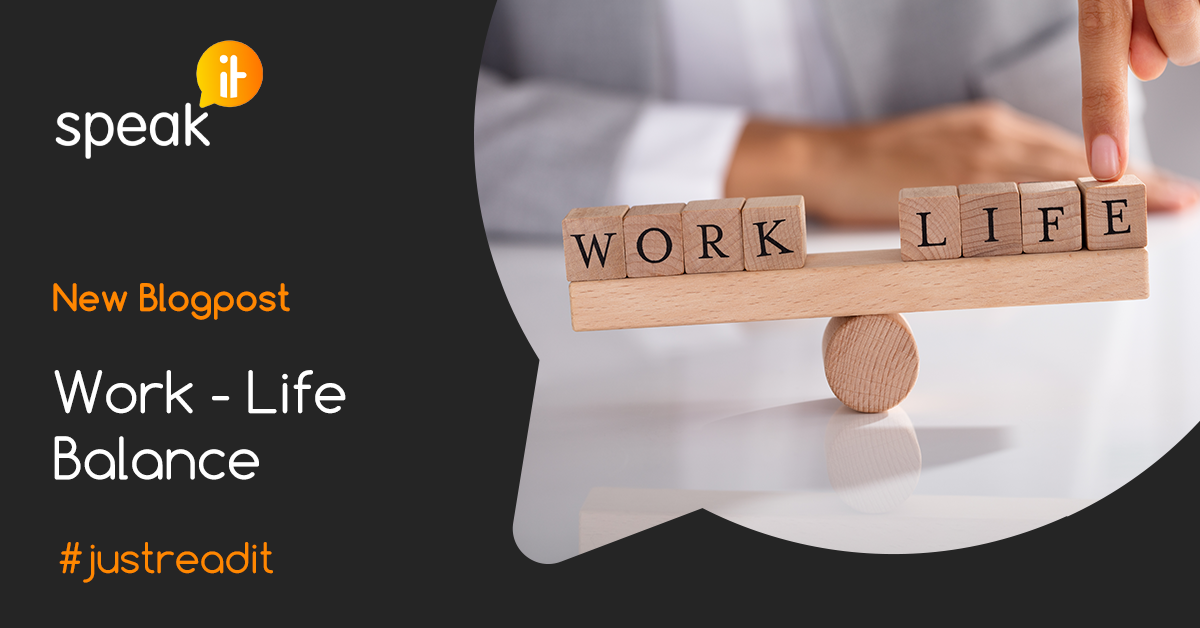Work-life balance is the state of equilibrium, when a person prioritizes their personal and professional obligations equally. A healthy work-life balance has several advantages, including less stress, a lower chance of burnout, and a stronger sense of wellbeing. Employers and employees both gain from this. In short, preserving a healthy work-life balance can boost employee performance and increase productivity.
Another term that can be used, in order to explain the topic further, is work-life integration, an increasingly popular concept with the idea of integrating our personal and professional obligations in a beneficial way. According to this viewpoint, work is yet one part of our life that must be taken into account alongside other vital concerns, like our relationships with our home and family, and our own personal wellbeing, and not looking like a scale with two opposing sides.
But how can we maintain this balance?
- Pause and evaluate
The first step in creating a new work-life integration that meets your needs is to take some time to reflect on how the many aspects of your life are affecting one another. Take a moment to reflect on your present work-life balance and evaluate your feelings.
- Prioritize yourself, pay attention to your emotions
Examine how you feel about your current circumstance after you’ve been more conscious of it. Do you feel invigorated, contented, or full of purpose? Or am I sad, bitter, or angry? Emotional reflexivity, or the ability to detect how a situation is making you feel, is just as vital as having a cognitive knowledge of the choices and goals guiding your life. To decide what changes you want to make in your life and at work, you must be aware of your emotional state.
- Time management
Examine how you currently spend your time and, if possible, seek for methods to rework your calendar. To focus on one subject at a time, you can “chunk” your time. You may use a matrix approach to decide what to prioritize when suddenly new duties come up.
- Don’t be afraid to unplug
We can relieve our weekly tension by occasionally cutting ties with the outer world, which also creates room for new thoughts and ideas. Unplugging can be as simple as establishing boundaries between work and life, in order to prevent burnout. For example, avoid thinking about forthcoming projects or responding to work emails as you leave the workplace.
- Reflect, refine, repeat
Whatever steps you decide are necessary to achieve a healthy work-life balance, you should be aware that you will probably need to keep improving it over time. Large-scale life changes can take time, so periodically reviewing and improving your strategy will probably be an essential part of the process.
This is a process that we must continue to engage in, as our circumstances and priorities change. Apparently, a work-life balance boils down to a combination of redefinition and reflexivity, or challenging presumptions to increase self-awareness.
